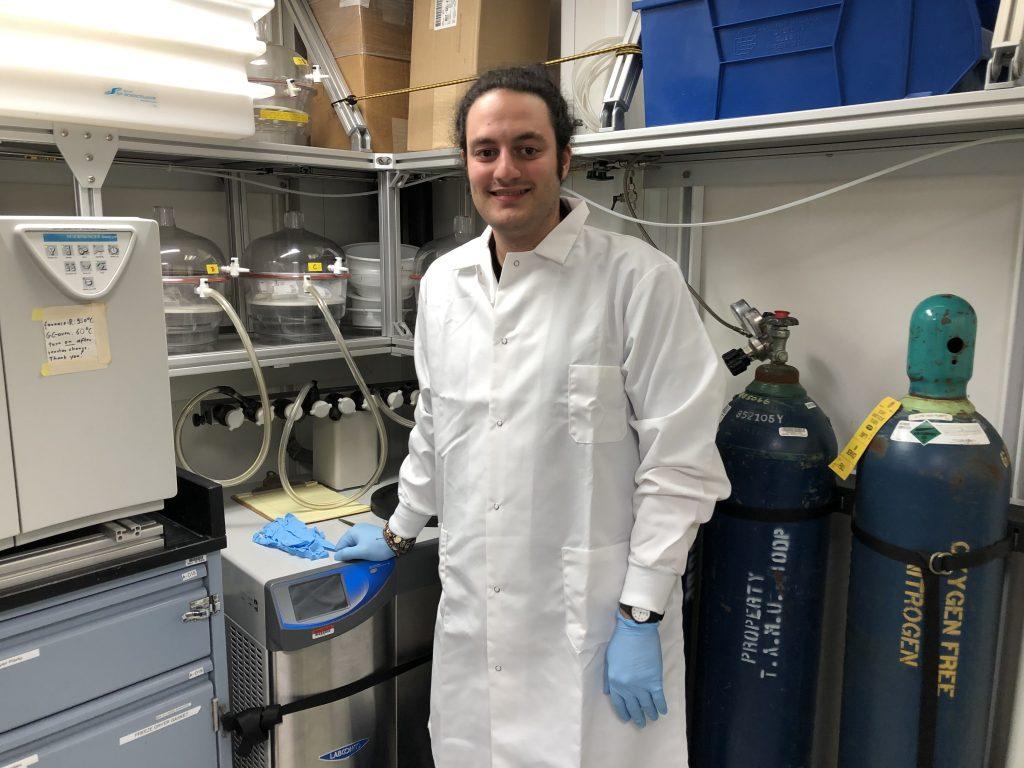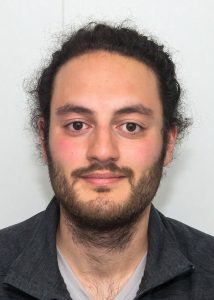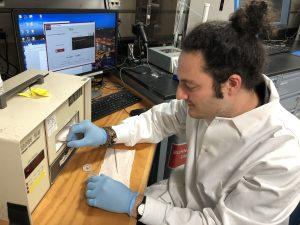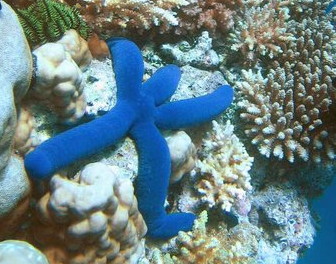
Career Spotlight: Organic Geochemist Simone Moretti

Simone Moretti Interview
Please describe your job duties while on the JR. What will you be doing on a daily basis?
-
-
-
-
-
-
-
-
- I will be measuring carbonate content using a Coulometer, organic carbon with an Elemental Analyzer (EA), and hydrocarbons concentrations in the sediments using a Gas Chromatograph (GC).
-
-
-
-
-
-
-
Describe one instrument or tool that is essential for you to do your job? Or a piece of equipment on the JR that is useful and why – what does it do?
-
-
-
-
-
-
-
-
- Working with isotopes makes a mass spectrometer my favorite (and essential) instrument. A mass spectrometer tells us the relative abundance of different isotopes of one given element in a certain sample. This can give us information about the sources and processes linked to the sample itself.
-
-
-
-
-
-
-
Why is your work (or research) important? What question are you trying to answer or how does your work/research help assist/advance scientific knowledge?
- One of my research goals is to reconstruct the evolution of the Antarctic Circumpolar Current (ACC) over the Cenozoic (the last 65 Myr). The Antarctic Circumpolar Current is the biggest current on Earth, it plays a tremendous important role in regulating the global climate system and the distribution of heat and salinity across Ocean basins. While it is clear that the ACC must have been significantly different over the past 65 Myr it is not clear how it exactly evolved, what particular events characterized its history and what must have been their consequences on global biogeochemical cycles. Understanding the history of the ACC will not only unveil the mysteries of this very important component of the global climate system but will also help us understanding more deeply the evolution of the global biogeochemical cycles on a global scale.

Why the ocean? What made you choose a career at sea or career that involves the ocean?
- As a young undergraduate in geology, I was fascinated by the amount of environmental information that can be extracted out of the sediments at the bottom of the ocean. Traditional topics in geology such as geological mapping or volcanology were still fun and extremely interesting, but the idea of reconstructing a past environment out of something as simple as ocean bottom sediments is what caught my interest very early in my studies. Moreover, I think the ocean is a fascinating environment, and we currently know more about the surface of Mars than the bottom of our oceans. There is so much to discover and so many secrets to be unveiled. Studying the oceans to reveal the Earth’s past makes it even more exciting. I have been very happy with my choice.
What are you most excited about for this expedition and/or being on the JR?
- This is my first cruise ever! The fact that is on the JR makes it even more exciting. Moreover, the goals of this expedition are totally in line with the goals of my PhD project.
What are three things you think are needed for a successful expedition at sea? And Why!
- Cooperation
- Enthusiasm
- Skill

If you could answer one question about our Earth – what would it be and why?
- Where did water on Earth came from?
What is your favorite sea creature and why?
- Linckia Laevigata, a blue sea star! Why? Because it’s blue and because it’s a star! It also looks amazing.
When did you know you wanted to pursue a career in science or an ocean science career?
- I went to a technical high school working in electronics and telecommunications, while being very interesting, I just felt like it was not my thing. I had to face a real choice about what to do with my life at the end of high school, either find a job in the technology field (that would not have been difficult as there was high demand for that set of skills at the time), or go to university. Somehow this uncertain moment of my life re-awakened my childhood interest in science. I used to be a total nerd, at around age 8, I had (still have) my own Newtonian 114 reflector telescope and astronomy was a great passion of mine. But, my enthusiasm progressively faded through my teenage years. I think I opted for studying science because it sounded like great fun and, putting together this renewed passion for discovery with a sense of adventure and exploration that every young person has, was probably what drove my decision. During my first or second year of my Bachelor in Bologna, I starting reading a book from climate scientist and geochemist Wallace Broecker called “The Great Ocean Conveyor” and it was so exciting to learn how people reconstructed changes in the past ocean circulation with sedimentary archives. I believed that played a very important role in convincing me to pursue a career in paleoceanography and to move away from Italy to make it happen! It has been an exciting journey ever since. The fact that I am sharing my story while on a research vessel while crossing the Strait of Magellan proves it.
What do you personally hope to gain or experience while on EXP383?
- Networking, getting in touch with people and understanding more how things work in our field on a practical level. I am also looking for potential new collaborators.
What message do you have for anyone considering a career at sea or a career involving the ocean sciences?
- Traditionally we have people from the geosciences pursuing a career in the field of oceanography and even more paleoceanography, I would encourage people from other fields (e.g. computer scientists, biology, physics and chemistry) to join. Paleoceanography is inevitably a science based on many assumptions, we need people with different sets of skills to make these assumptions more solid, so that our paleo-environmental interpretation can be more robust.
What do you do back home when not on the JR?
- When I am not working on my PhD I like to play guitar and piano. I recently ordered a new telescope, I did not have time to use it yet, but I am planning to use it as soon as I am back. I would like to learn more about astro-photography too.
Do you get seasick? If yes or sometimes, please also select the other tab and describe how you cope with it.
- I thought I would get seasick on this expedition but am doing pretty well. I brought with me pills, bracelets, and a pair of anti-seasickness glasses but, luckily, I am not making use of it!
The need for space comes in many forms. Which type of space, in general, is the most important to you?
- _X__Personal Space
- ___Creative Space
- ___Outdoor Space
- ___Emotional Space
- ___Physical Space
- ___Spiritual or Meditative
- ___Outer Space
- ___Community Space
- ___Quite Space
- ___Productive/Work Space
- ___Digital/Virtual Space
- ___Public Space
- ___Inner Space
- ___Other:
- Why that type of space? What makes it important to you and will it be available while on the JR?
- I like to play music and read about the things I like, it is hard to focus on these things when there are people around you. Sometimes I simply enjoy spending time by myself. On a boat, personal space is by necessity limited but I am prepared for it and I am pretty flexible, so I do not see it as a problem. I just hope I can still manage to practice my playing without disturbing anyone!